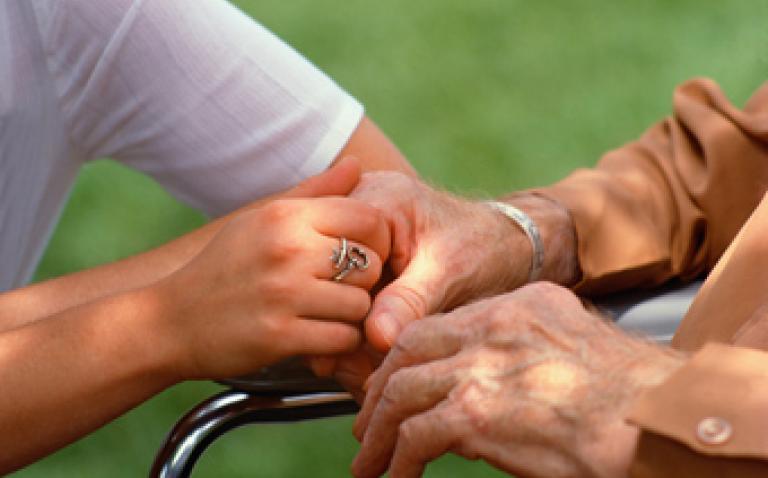A report from the Royal College of Physicians states that all patients who are suffering and dying should have the opportunity for a good death, with management of symptoms and psychological, social and spiritual support.
Yet the report highlights that access to palliative care services is inadequate and inequitable, with unacceptable variations in care geographically, across different demographic groups and patients with different illnesses and needs.
There is particular disparity between patients with cancer and those suffering from non-malignant conditions. The best care is excellent, the worst may be non-existent.
The voluntary sector and charity funding support about 70% of the costs of specialist care, with the NHS only providing about 30% of funding. Without this charitable funding, and the commitment of local communities, the development of palliative care would not have developed, but the lack of NHS funding is entirely unsatisfactory and has led to poor integration of services.
Sustainable and adequate core funding is essential to allow cohesive development of services across the country.
Research into the efficacy and cost-effectiveness of care is also inadequate, in particular new treatments for symptom control. It is difficult to undertake randomised controlled trials in such a vulnerable group of patients and there is little commercial incentive to develop new drugs.
Most patients would prefer much of their care to be provided in the community and to die at home, with appropriate support. Inadequate integration between health and social services, ineffective co-ordination and communication between service providers, and lack of expertise and resources all present major barriers to providing good care in the community.
The report makes many recommendations covering service development and provision, workforce, training and research.
Key recommendations include:
* All patients who are suffering and dying should have equitable access to palliative care services;
* Services should be increased with core NHS funding so that patients from any area with any condition should have the same access, and that this should not rely on the charitable sector;
* Central planning and commissioning should focus on integrated care across primary, secondary and tertiary health care and social care interfaces to make access for patients simple and reliable;
* Palliative care services should accommodate diverse cultures and lifestyles, taking into account differing beliefs and needs of ethnic groups;
* Physical, psychological, spiritual and social aspects of care are of equal importance;
* Referrals for palliative care should start early, when it would no longer be a surprise if the patient should die in the next year;
* Integrated care pathways for the dying, such as the Liverpool Care Pathway, should be used;
* Older people who die in hospital should become a priority of care for geriatricians in association with palliative care specialists, and palliative care should become an important part of training for geriatric medicine;
* More consultant and training posts are needed in palliative care and support staff to deliver care, carry out needs assessments and expand the service;
* The career aspirations and training needs of the large number of non-consultant career grade (NCCG) personnel who work in palliative medicine should be addressed;
* Single-handed posts should be discouraged, and palliative care physicians should have NHS contracts;
* Palliative care should be a core part of training for all health care professionals, whatever their specialty;
* Better research is needed into the efficacy and cost effectiveness of many palliative care interventions and into the development of new treatments.
Dr Mary Armitage, chair of the working party and immediate-past RCP Clinical Vice-President, said: “The UK led the development of modern palliative care.
“Generic palliative care skills should be embedded in the training and practice of all health care professionals.
“Specialist palliative medicine physicians have a key role to play in leading the development of services, in strategic planning and support for education and training as well as the delivery of care to patients with complex needs. They need the resources to ensure that all patients receive timely and excellent end-of-life care”.










